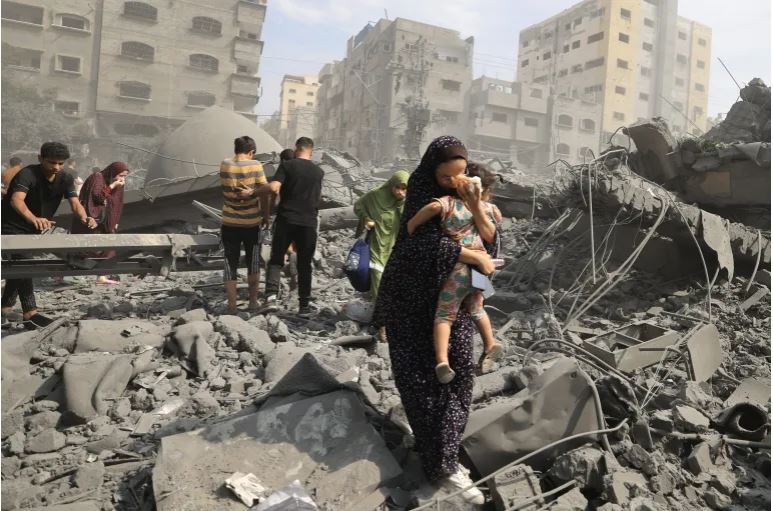
Published 10/25/2023 16:57 | Edited 10/25/2023 17:02
HAVE THE COURAGE TO AVOID THE WORST
Only the return of the Palestinian territories will bring a commitment to peace
Newspaper
24.out.2023
VARIOUS AUTHORS (names at the end of the text)
As we watch in horror the intolerable loss of thousands of lives and the enormous suffering of the Palestinian people, we view with great concern the harassment and attempts to silence dissenting opinions that are part of the public debate. Associating the defense of the Palestinian cause —the inalienable right of these people to live in their own territory, respecting all UN resolutions— with anti-Semitism and support for terrorism is an extremely dishonest operation and an affront to human rights.
The existence of a stateless people, living segregated and in conditions of apartheid, is not acceptable, under any argument. Less acceptable is the absence of international indignation and institutional pressure against the Israeli government to respect international standards, complying with UN demands without subterfuge.
Any honest analysis of how we got to this point of extreme violence must begin by remembering that the Palestinians who chose a diplomatic way out of the conflict with Israel were betrayed. Any narrative that does not start from the reasons for the historic failure of the Oslo agreements and the total inaction of the international community is false and biased. The lack of respect for international peace agreements has always produced the worst consequences.
Read too: Conflict in Palestine makes Arab countries rethink relations with Israel
The international community’s tolerance for Israel’s failure to comply with its commitments allowed the consolidation of an apartheid regime against the Palestinians with the aim of maintaining the domination of a single ethnic and national group. Despite 20% of Israel’s population being Palestinians, in 2018 the Basic Law of the Nation-State was approved, stating that “the right to exercise national self-determination in the State of Israel is exclusive to the Jewish people”. Thus, a system of segregation and inequality institutionalized by laws and policies was consolidated throughout historical Palestine.
At this moment, it is essential to courageously face the problem that affects the entire world: peace in the Middle East depends on the end of the illegal occupation of Palestinian territories and apartheid. The circulation of speeches about the “enormous complexity” of the situation is fallacious and aims to hide the continuity of the ethnic cleansing of the Palestinian people.
The only response to such a concealment of reality is the demand that the inalienable rights of the Palestinian people finally be respected by Israel with the return of the territories of the West Bank, East Jerusalem, the Gaza Strip and the Golan Heights.
The system of segregation and discrimination against the Palestinian people, in their own land, needs to give way to a regime of universal respect for everyone who lives there. Only a commitment to real peace, to lasting solutions anchored in international law and to respect for freedom of expression, can produce a global conscience capable of eliminating the supreme injustices to which the Palestinians continue to be subjected.
Otherwise, as José Saramago, Nobel Prize winner for Literature, said: “One day the history of the suffering of the Palestinian people will be made and it will be a monument to the indignity and cowardice of the people.”
Arlene Clemesha – Professor of Arabic history (USP)
Marilena Chaui – Professor emeritus of philosophy (FFLCH-USP)
Leda Paulani – Full professor at the Faculty of Economics and Administration at USP
Carlos Augusto Calil – Professor at the School of Communication and Arts at USP
Paulo Sérgio Pinheiro – Professor of political science (FFLCH-USP) and former minister of Human Rights (FHC government)
Vladimir Safatle – Professor of philosophy (FFLCH-USP)
*The authors write on behalf of a larger group of professors at the University of São Paulo
Source: vermelho.org.br

